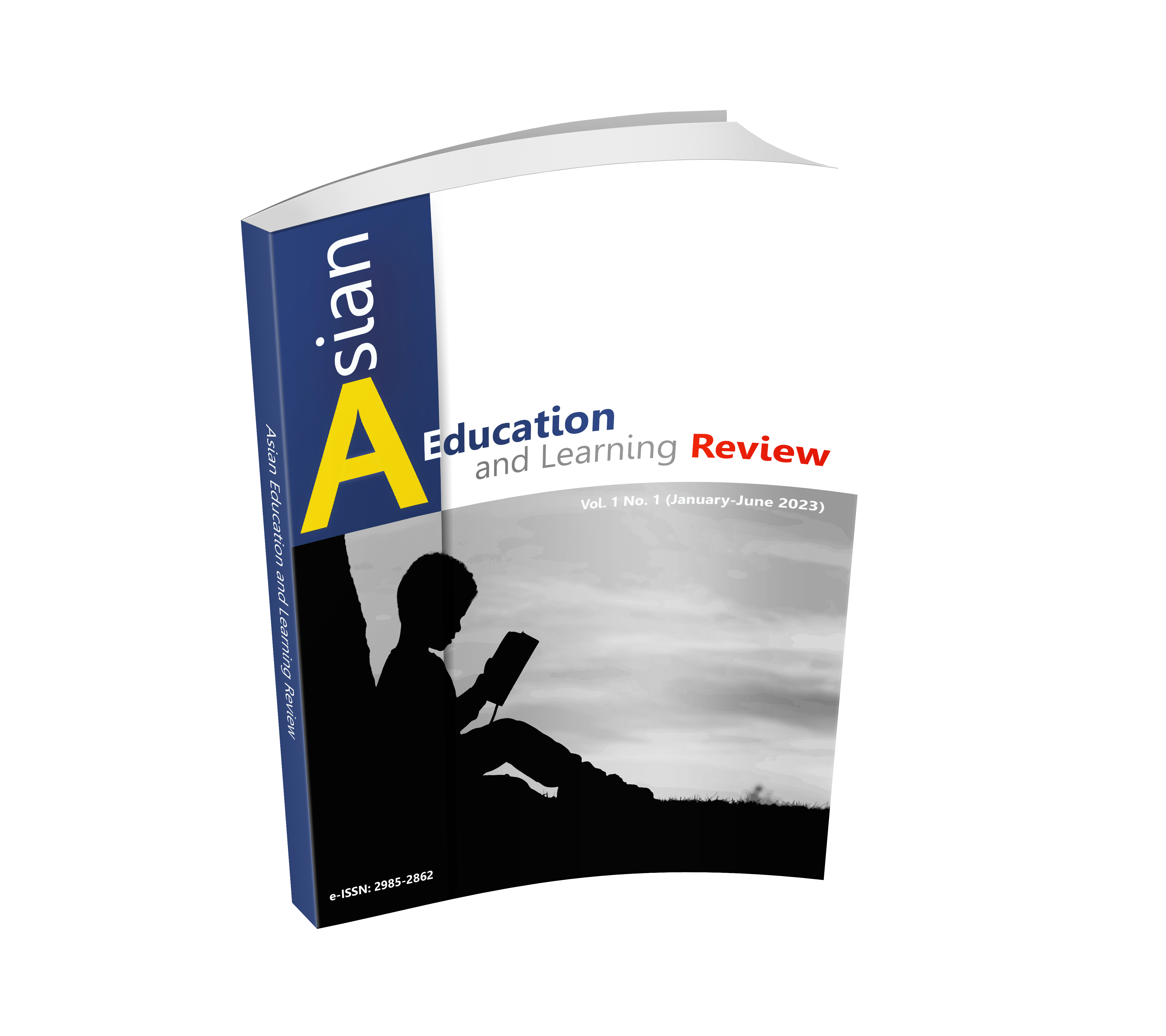EXPLORING THE KNOWLEDGE CLUSTERS IN SELF-COMPASSION RESEARCH: A BIBLIOMETRIC ANALYSIS
DOI:
https://doi.org/10.14456/aelr.2023.2Keywords:
Self-Compassion, Cluster, Bibliometric, VOSviewer, ScopusAbstract
The number of research in self-compassion has increased exponentially, thus scientific mapping with large and controversial research stream is required for better visualization of what researchers have already done. This study aims to explore the clusters in research related to self-compassion by using a Bibliometric Network Analysis. This was a literature-based descriptive study. This study included 1,764 publications from SCOPUS database, then analyzed the data using the VOSviewer software to present a bibliometric network analysis including the authors’ keywords co-occurrence mapping, and authors’ keywords co-occurrence temporal mapping. The results showed that most publications were published and cited in Mindfulness (10.71% and 4.49% respectively). Most publications were found in Psychology (68.14%), followed in Medicine (33.67%). The authors’ keywords co-occurrence mapping was visualized, presenting five main clusters including psychological aspects, individual difference, adolescents and their self-concept, emotion and coping behavior, and study methods. Burnout, well-being, mental health, and resilience were found as examples of the latest terms of the authors’ keywords co-occurrence temporal mapping, categorized in the cluster related to psychological aspects. These findings might usefully provide information about the clusters in self-compassion research toward completing of the literature.
Downloads
References
Albertson, E., Neff, K., & Dill-Shackleford, K. (2015). Self-compassion and body dissatisfaction in women: A randomized controlled trial of a brief meditation intervention. Mindfulness, 6, 444-454.
Boonroungrut, C., & Toe-Oo, T. (2017). Dark Triad Trends in Personality Studies: Systematic Review with Bibliometric Network Analysis. Journal of Humanities and Social Sciences Mahasarakarm University, 36(6), 63-70.
Boonroungrut, C., Saroinsong, W., & Eiamnate, N. (2022). Brief report: Visualizing scientific landscape on learning disabilities in SCOPUS between 2012 and 2021. In I. Maureen, E. Imah, S. Savira, S. Anam, M. Mael, & L. Hartanti. (eds.). Innovation on Education and Social Sciences (pp. 134-140). London: Routledge.
Braun, T., Park, C., & Gorin, A. (2016). Self-compassion, body image, and disordered eating: A review of the literature. Body image, 17, 117-131.
Crego, A., Yela, J., Riesco-Matías, P., Gómez-Martínez, M., & Vicente-Arruebarrena, A. (2022). The Benefits of Self-Compassion in Mental Health Professionals: A Systematic Review of Empirical Research. Psychology Research and Behavior Management, 15, 2599-2620.
Ferrari, M., Hunt, C., Harrysunker, A., Abbott, M., Beath, A., & Einstein, D. (2019). Self-compassion interventions and psychosocial outcomes: A meta-analysis of RCTs. Mindfulness, 10, 1455-1473.
Halamová, J., Kanovský, M., Varšová, K., & Kupeli, N. (2021). Randomised controlled trial of the new short-term online emotion focused training for self-compassion and self-protection in a nonclinical sample. Current psychology, 40, 333-343.
Hamidah, I., Sriyono, S., & Hudha, M. (2020). A Bibliometric analysis of Covid-19 research using VOSviewer. Indonesian Journal of Science and Technology, 5(2), 209-216.
Hollis-Walker, L., & Colosimo, K. (2011). Mindfulness, self-compassion, and happiness in non-meditators: A theoretical and empirical examination. Personality and Individual differences, 50(2), 222-227.
Knutas, A., Hajikhani, A., Salminen, J., Ikonen, J., & Porras, J. (2015). Cloud-based bibliometric analysis service for systematic mapping studies. A paper presented at the 16th International Conference on Computer Systems and Technologies, Dublin, Ireland.
Kotera, Y., Ozaki, A., Miyatake, H., Tsunetoshi, C., Nishikawa, Y., & Tanimoto, T. (2021). Mental health of medical workers in Japan during COVID-19: Relationships with loneliness, hope and self-compassion. Current Psychology, 40(12), 6271-6274.
MacBeth, A., & Gumley, A. (2012). Exploring compassion: A meta-analysis of the association between self-compassion and psychopathology. Clinical psychology review, 32(6), 545-552.
Marshall, S., Parker, P., Ciarrochi, J., Sahdra, B., Jackson, C., & Heaven, P. (2015). Self-compassion protects against the negative effects of low self-esteem: A longitudinal study in a large adolescent sample. Personality and individual differences, 74, 116-121.
Nasir, A., Shaukat, K., Hameed, I., Luo, S., Alam, T., & Iqbal, F. (2020). A bibliometric analysis of corona pandemic in social sciences: a review of influential aspects and conceptual structure. IEEE Access, 8, 133377-133402.
Neff, K. (2003). The development and validation of a scale to measure self-compassion. Self and identity, 2(3), 223-250.
Neff, K. (2016). The self-compassion scale is a valid and theoretically coherent measure of self-compassion. Mindfulness, 7, 264-274.
Neff, K., Tóth-Király, I., Knox, M., Kuchar, A., & Davidson, O. (2021). The development and validation of the state self-compassion scale (long-and short form). Mindfulness, 12(1), 121-140.
Perianes-Rodriguez, A., Waltman, L., & Van Eck, N. (2016). Constructing bibliometric networks: A comparison between full and fractional counting. Journal of Informetrics, 10(4), 1178-1195.
Phillips, W. (2021). Self-compassion mindsets: The components of the self-compassion scale operate as a balanced system within individuals. Current Psychology, 40(10), 5040-5053.
Raes, F. (2010). Rumination and worry as mediators of the relationship between self-compassion and depression and anxiety. Personality and Individual Differences, 48(6), 757-761.
Winders, S., Murphy, O., Looney, K., & O'Reilly, G. (2020). Self‐compassion, trauma, and posttraumatic stress disorder: A systematic review. Clinical Psychology & Psychotherapy, 27(3), 300-329.
Zessin, U., Dickhäuser, O., & Garbade, S. (2015). The relationship between self‐compassion and well‐being: A meta‐analysis. Applied Psychology: Health and Well‐Being, 7(3), 340-364.

Downloads
Published
How to Cite
Issue
Section
License
Copyright (c) 2023 Authors

This work is licensed under a Creative Commons Attribution-NonCommercial-NoDerivatives 4.0 International License.






.png)


